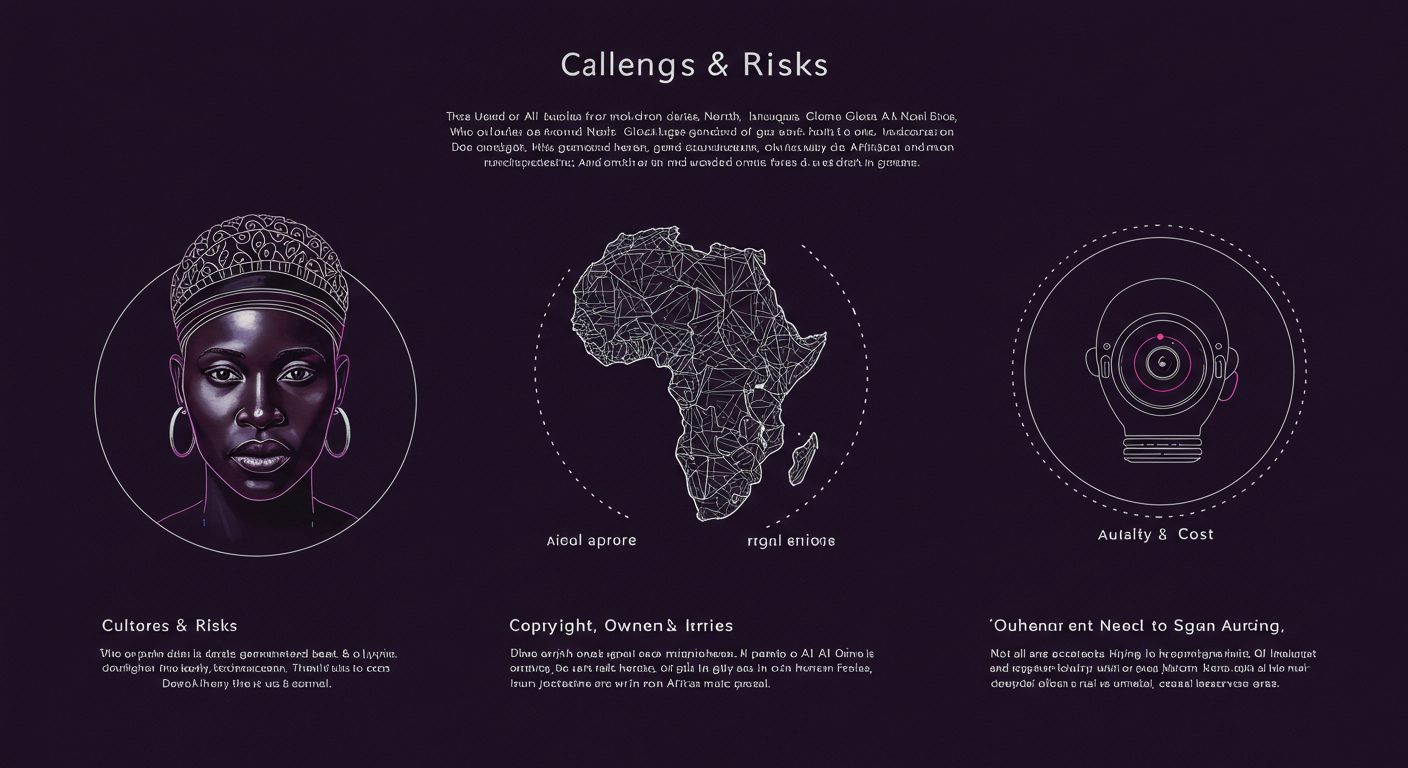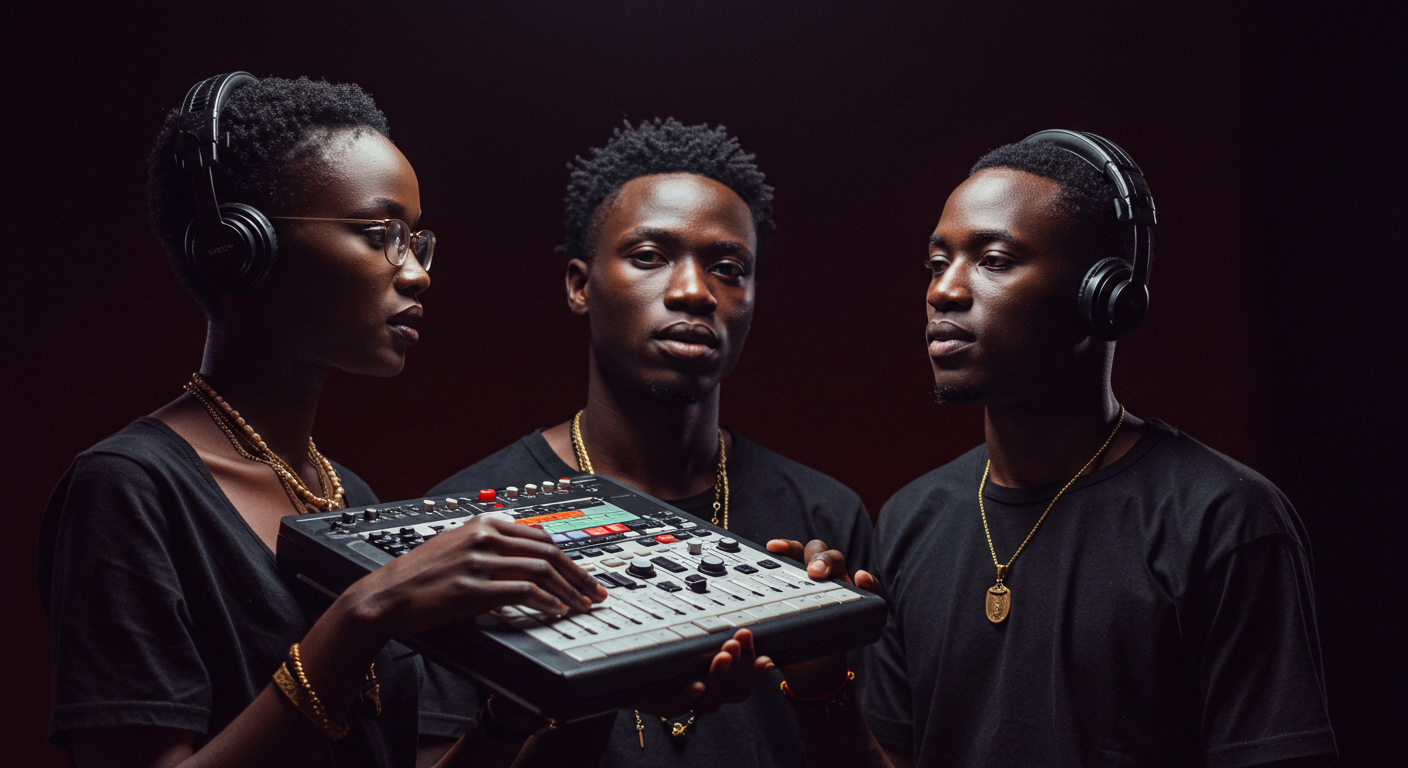African music has long captivated global audiences with its vibrant rhythms, storytelling, and fusion of traditional and modern sounds. Yet, as vibrant as it is, the industry is undergoing another revolution — driven by artificial intelligence (AI). From helping artists compose and produce music, to influencing promotion, distribution, and audience engagement, AI is reshaping how African music is made, shared, and consumed. In this article, we explore the key ways AI is transforming the African music scene — what’s working, what’s challenging, and what the future holds.
1. AI as a Creative Partner
Composition & Beatmaking: More African producers are using AI tools that suggest chord progressions, generate beats, or remix existing tracks. These tools allow artists to experiment faster, explore new sounds, or refine ideas more efficiently.
Lyrics & Language Diversity: AI language models now help generate lyrics in African languages or dialects. They’re improving in fluency and nuance, supporting authenticity as well as commercial reach. Artists can combine local languages like Yoruba, Swahili, Twi etc. with global genres.
Co-creation & Sampling: AI systems are helping with sample generation or choral/chorus suggestions, enabling collaborations across genres and countries without physical presence. Virtual harmonies, AI-enhanced vocals are increasingly common.
2. Production & Studio Efficiency
Automatic Mixing & Mastering: AI-powered plugins now assist with mastering tracks, balancing levels, and reducing noise — lowering the cost barrier for independent artists without full studio setups.
Vocal Processing & Effects: AI tools enable artists to fine-tune vocals, add effects or correct pitch while preserving the character of the voice. This raises production quality even for bedroom studios.
Sound Design Innovation: AI can generate novel instrument sounds or fusion textures by learning from African traditional instrumentation and synthesizing new sonic palettes.

3. AI-Driven Distribution & Audience Targeting
Smart Recommendation & Discovery: Streaming platforms are employing more refined AI algorithms that help listeners discover African artists they might never have encountered, based on listening habits, moods, geography, etc.
Social Media Content Generation: Artists are using AI to make content faster — visuals, animated snippets, lyric videos. This helps keep fans engaged and reach new audiences without huge budgets.
Predictive Analytics: Labels and artist teams use AI to forecast trends, understand what songs are likely to go viral, which markets to target, even down to social demographics. This helps in planning releases, pricing, and touring.
4. Challenges & Risks
Cultural & Data Bias: Many AI tools are trained on data from the Global North; African sounds and languages are underrepresented. This can lead to models that misunderstand or misrepresent unique cultural elements.
Copyright, Ownership & Royalties: Who owns an AI-generated beat or lyrics? If part of a track is AI-generated, do the rights belong fully to the artist, the developer, or both? There are ongoing legal grey areas in many African countries.
Quality vs Authenticity: Overdependence on AI might lead some music to lose its soul — the raw imperfections, the human feels — which are often what make African music special.
Access & Cost: Not all artists have access to high-speed internet, affordable AI tools, or knowledge to use them. This can deepen the divide between established musicians and up-and-comers in rural or underserved areas.
5. Success Stories & Emerging Trends
Artists who have used AI-assisted tools to compose or promote tracks that cross over to international charts. (Example: AI‑generated remix leading to viral TikTok growth.)
Increasing number of startups in Africa building AI solutions specifically for local music — e.g. tools that understand local languages, rhythms, traditional instruments.
Festivals, competitions, incubators embracing AI in their programs, giving artists training in AI‑enabled music production.
AI is not just a tool but a transformative force in the African music industry in 2025. It offers opportunities for creative expansion, efficiency, and global reach.
But it also poses serious challenges of fairness, cultural preservation, and equitable access. Artists, technologists, and policymakers have key roles to play: to ensure AI augments and amplifies African music rather than dilutes its rich diversity. The future could be one where every African artist — whether in Lagos, Nairobi, Accra, or Kigali — has AI as a partner in bringing their voice to the world.


Even if we do not talk about 5G (specifically), the security talent in general in the country is very sparse at the moment. We need to get more (security) professionals in the system.